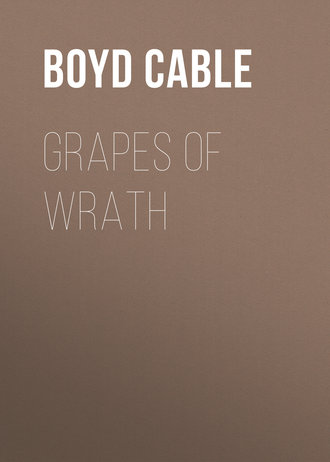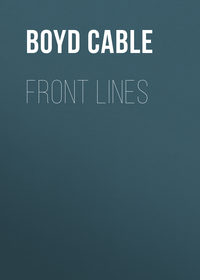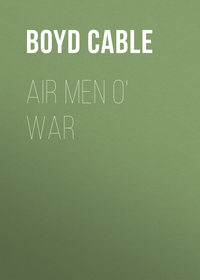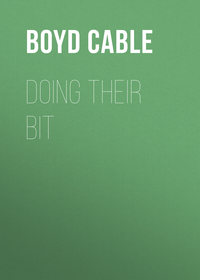
Grapes of wrath
After the German counter-attack was caught in the nick of time and driven back with heavy loss, a good many of the counter-attackers instead of risking the run back to the shelter of their trench dropped into shell-holes and craters, and from here the more determined of them continued to shoot at any head showing in the British line. The men of the latter were also scattered along the broken ground in what at one time had been the open between two trenches, but was now a better position and in its innumerable deep shell craters offered better cover than the wrecked fragment of a trench behind them. On both sides too the gunners were ferociously strafing the opposition trenches, but since they dare not drop their shells too near to where they knew their own front lines to be located the tendency on both sides was for the front line to wriggle and crawl forward into the zone left uncovered by bursting high-explosive shells and shrapnel. The German and British infantry naturally did their best to discourage and make as expensive as possible the forward movement by the opposition, and industriously sniped with rifle and machine gun any men who exposed themselves for a moment. But when the counter-attack fell back Pug was for some minutes too busily engaged in helping to bandage up a badly wounded man to pay much attention to what the Germans were doing. When the job was completed he raised his head and looked out of the shell hole where he and the others were sheltering and peered round through the drifting smoke haze. He caught dim sight of some moving figures and raised his voice lustily. “Stretche-e-er!” he shouted, and after waiting a minute, again “Stre-tche-e-er!” Amidst all the uproar of battle it is not probable that his voice had a carrying power of more than scanty yards, but when no stretcher-bearers immediately materialized in answer to his call Pug appeared a good deal annoyed. “Wot d’you s’pose them blanky bearers is doin’?” he grumbled, then raised his voice and bawled again. He shouted and grumbled alternately for a few minutes with just the growing sense of annoyance that a man feels when he whistles for a taxi and no taxi appears. Two or three times he ducked instinctively at a hiss of a close bullet and once at the “Cr-r-ump” of a falling shell and the whistle of its flying splinters, and when he stood to shout he took care to keep well down in his shell hole, raising no more than his head above its level to allow his voice to carry above ground. Apparently, although he thought it unpleasantly risky to be above ground there, and in no way out of place for him not to expose himself, he took it quite for granted that stretcher-bearers would accept all the risk and come running to his bellowings. But in case it be thought that he expected too much, it ought to be remembered that it is the stretcher-bearers themselves who are responsible for such high expectations. Their salving of broken bodies from out the maelstrom of battle, their desperate rescues under fire, their readiness to risk the most appalling hazards, their indifference to wounds and death, their calm undertaking of impossibly difficult jobs, these very doings which by their constant performance have been reduced to no more than the normal, have come to be accepted as the matter-of-fact ordinary routine business of the stretcher-bearers. Pug, in fact, expected them to come when he called, only because he had seen them scores of times answer promptly to equally or even more risky calls.
And the stretcher-bearers in this instance did not fail him. A couple appeared looming hazily through the smoke, and at another call labored heavily over the broken ground to him. They saw the wounded man before Pug had time to make any explanation of his call, and without stopping to waste words, slid over the edge of the crater, dropped the stretcher in position beside the wounded man, ran a quick, workmanlike glance and touch over the first field-dressings on him, had him on the stretcher and hoisted up out of the hole all well inside a couple of minutes.
Pug returned to his own particular business, and settling himself against the sloping wall of the crater nearest the Germans took a cautious survey of the ground before him. At first he saw nothing but the rough, churned-up surface and a filmy curtain of smoke through which the resuming British bombardment was again beginning to splash fountains of shell-flung reek and dust. But as he looked a figure appeared, came forward at a scrambling run for a score of paces and dropped out of sight into some hole. At first sight of him Pug had instinctively thrust forward his rifle muzzle and snapped off a quick shot, but the man had run on apparently without taking any notice of it. Pug was a fair enough shot to feel some annoyance. “D’jer see that?” he asked his neighbor. “Beggar never even ducked; an’ I’ll bet I didn’t go far off an inner on ’im.” The neighbor was taking a long and careful sight over the edge of the pit. He fired, and without moving his rifle gazed earnestly in the direction he had shot. “Wot’s that, Pug?” he said at last, jerking out the empty shell and reloading. “Who ducked? Ah, would yer!” he exclaimed hastily, and pumped out a rapid clipful of rounds. Pug joined in with a couple of shots and the dodging figures they had shot at vanished suddenly. “Wot’s their game now, I wonder,” said Pug. “D’you think they’re edgin’ in for another rush?” He had raised himself a little to look out, but the venomous hiss-zizz of a couple of bullets close past his head made him bob down hurriedly.
“You gotter look out,” said the other man. “A lot o’ blighters didn’t bolt when we cut up their attack. They just dropped into any hole that come handy, an’ they’re lyin’ there snipin’ pot shots at any one that shows.”
Pug banged off a shot, jerked the breech open and shut and banged off another. “See that,” he said. “Same bloke I potted at afore. Not ’arf a cheeky blighter either. Keeps jumpin’ up an’ runnin’ in to’ards us. But you wait till nex’ time – I’ll give ’im run.” He settled himself nicely with elbow-rest, wide sprawled legs, and braced feet, and waited with careful eye on his sights and coiled finger about the trigger. Two minutes he waited, and then his rifle banged again, and he exclaimed delightedly, “I gottim, chum. I gottim that time. See ’im flop?” But his exclamation changed to one of angry disgust as he saw the man he supposed he had “got” rise from behind his cover, beckon vigorously to some one behind him, and move forward again another few steps.
Pug blazed another shot at him, and in response the man, in the very act of dropping to cover, stopped, straightened up, and after staring in Pug’s direction for a moment, turned, and lifting the helmet from his head repeated the beckoning motion he had made before.
“Well of all the blinkin’ cheek,” said Pug wrathfully; “take that, you cow,” firing again.
“Wot’s up?” said his companion. “Is some bloke stringin’ you?”
“Fair beats me,” said the exasperated Pug. “I’ve ’ad half a dozen clean shots at ’im, an’ ’e just laughs at ’em. But I’ve marked the last place ’e bogged down into, an’ if ’e just pokes a nose out once more, ’e’ll get it in the neck for keeps.”
“Where is ’e?” said the interested chum; “show us, an’ I’ll drop it acrost ’im too when ’e pops out.”
“No,” said Pug firmly, “fair dinkum. ’E’s my own private little lot, an’ I’m goin’ to see ’im safely ’ome myself. S-steady now, ’ere ’e comes again. Just ’avin’ a look out, eh Fritz. Orright, m’ son. Keep on lookin’ an’ it’ll meet yer optic – plunk,” and he fired. “Missed again,” he said sadly as he saw a spurt of mud flick from the edge of the German’s cover. “But lumme, chum, di’jer see the ’elmet that bloke ’ad?” The German it may be remembered had drawn attention to his helmet by taking it off and waving it, but Pug at that moment had been too exasperated by the impudence of the man’s exposure to notice the helmet. But this time a gleam of light caught the heavy metal “chin-strap” that hung from it, and although the helmet itself was covered with the usual service cover of gray cloth, Pug could see distinctly that it was one of the old pickel-hauben type – one of the kind he so greatly coveted as a “souvenir.”
“That settles it,” said Pug firmly. “I’m goin’ to lay for that bloke till I gets ’im, an’ then when we advance I’ll ’ave ’is ’elmet.”
He lay for several minutes, watching the spot where the German was concealed as a cat watches a mouse-hole, and when his patience was rewarded by a glimpse of gray uniform he took steady aim, carefully squeezed the trigger until he felt the faint check of its second pull-off, held his breath, and gave the final squeeze, all in exact accordance with the school of musketry instructions. The patch of gray vanished, and Pug could not tell whether he had scored a hit, but almost immediately he saw the spike and rounded top of the helmet lift cautiously into sight. Again Pug took slow and deliberate aim but then hesitated, “Tchick-tchicked” softly between his teeth, aimed again and fired. The helmet vanished with a jerk. “Lookin’ over the edge of ’is ’ole, ’e was,” said Pug. “An’ at first I didn’t like to shoot for fear of spoilin’ that ’elmet. But arter all,” he conceded cheerfully, “I dunno’ that it wouldn’t maybe improve it as a fust-class sooven-eer to ’ave a neat little three-oh-three ’ole drilled in it.”
“Did you drill it?” asked his companion directly.
“Dunno,” admitted Pug, “but I’m keepin’ a careful eye on ’im, an’ I’ll soon know if ’e moves again.”
But in the process of keeping a careful eye Pug was tempted for an instant into keeping a less careful head under cover than the situation demanded. A bullet leaped whutt past within an inch of his ear and he dropped flat to earth with an oath. “That was ’im,” he said, “I saw the flash of ’is rifle. Looks like ’e’s got me piped off, an’ it’s goin’ to be ’im or me for it.”
Chick and another man in the same hole had been busy shooting at any mark that presented, but when their every appearance above ground began to be greeted by an unpleasantly close bullet, they ceased to fire and squatted back in the hole to watch Pug and the conducting of his duel. A dozen times he and the German fired, each drawing or returning instant shot for shot, Pug moving from one spot to another in the shell crater, pushing his rifle out slowly, lifting his head cautiously an inch at a time.
Over their heads the great shells shrieked and rushed, round them crackled a spattering rifle fire, the occasional hammering of a machine gun, the rolling crash and whirr of bursting shells and flying splinters. Wide out to right and left of them, far to their front and rear the roar of battle ran, long-thundering and unbroken, in a deafening chorus of bellowing guns, the vibrating rattle of rifles and machine guns, the sharp detonations and reports of shells and bombs and grenades. But Pug and, in lesser degree, his companions, were quite heedless of all these things, of how the battle moved or stayed still. For them the struggle had boiled down into the solitary duel between Pug and his German; the larger issues were for the moment completely overshadowed, as in war they so often are, by the mere individual and personal ones. Pug insisted in finishing off his duel single-handed, declining to have the others there interfere in it. “It’s ’im or me for it,” he repeated, “fair dinkum. An’ I’m goin’ to get ’im and ’is ’elmet on my blinkin’ own.”
He decided at last to move his position, to crawl along and try to catch his opponent in flank, to stalk his enemy as a hunter stalks a hidden buck. Since he could not escape from the crater they were in without exposing himself to that watchful rifle, he scraped down with his entrenching tool a couple of feet of the rim of the crater where it formed a wall dividing off another crater. When he had cleared the passage he came back and fired another shot, just to keep his enemy watching in the same spot for him, and hurriedly crawled over into the next crater, squirmed and wriggled away from it along cracks and holes and folds of the torn and tumbled ground in a direction that he reckoned would allow him to reach the German sheltering in his hole and behind a broken hillock of earth. But before he reached such a position as he desired he found himself looking over into a deep crater occupied by an officer and half a dozen men with a machine gun.
The officer looked up and caught sight of him. “Hullo, Sneath,” he said. “Where are you off to? You’re moving the wrong way, aren’t you? The order was to retire, and you’re moving forward.”
Pug wriggled over into the crater and crouched puffing and blowing for a moment. “I ’adn’t ’eard nothin’ about retiring, sir,” he said doubtfully.
“That’s the order,” said the officer briskly. “I don’t know what it means any more than you do, but there it is. You’d better wait now and move back with us.”
Pug was annoyed – exceedingly annoyed. This retirement looked like losing him his duel, and what was more, losing him his coveted helmet. Retirement was a thing he had not for an instant calculated upon. He had taken it quite for granted that if he could slay the wearer of the helmet, the helmet was his, that he had only to wait until the line advanced to go straight to it and pick it up. With a vague idea that he would have managed the affair much better on his own, without these interfering directions of his movements, he began to wish he had never come across this officer, and from that passed to wondering whether he couldn’t give the officer the slip and finish off his program in his own way.
At that moment the British artillery fire redoubled in intensity and the rush of shells overhead rose to a roaring gale.
“Sharp there,” said the officer. “Get that gun picked up. Now’s our chance to get back while the guns are socking it into ’em.”
He was right, of course, and their chances of retirement were likely to be improved by the heavier covering fire. Pug was also right in a half-formed idea that had come to him – that the covering fire would also lessen the risk of a move forward, or as he put it to himself – “With all them shells about their ears they’ll be too busy keepin’ their heads down to do much shootin’ at me if I chance a quick rush; an’ most likely I’d be on top o’ that bloke wi’ the ’elmet afore ’e knew it.”
The others were picking up the machine gun and preparing to move, and Pug took a long and careful look over the edge of the hole to locate his helmet wearer. With a quick exclamation he snatched the rifle to his shoulder, aimed, and fired.
“That’ll do,” said the officer sharply turning at the sound of the shot. “Cease firing and get along back.” But Pug was gazing hard in the direction of his shot. “I’ve got ’im,” he said triumphantly, “I’ll swear I got ’im that time. Showin’ a fair mark ’e was, an’ I saw ’im jerk ’an roll when I fired.”
“Never mind that,” said the officer impatiently. “There’s their rifle fire beginning again. Time we were out of this. Keep down as well as you can all of you. Move yourselves now.”
The men began to scramble out of the hole, and in an instant Pug’s mind was made up. They were retiring; so far as he knew the battalion might be retiring out of the line, out of the battle, and out of the reach of chances of German helmets. And meantime there was his helmet lying there waiting to be picked up, lying within a hundred yards of him.
He climbed up the rear wall of the crater, halted and spoke hurriedly to the officer. “I won’t be ’alf a mo’, sir,” he said. “Something there I want to pick up an’ bring in,” and without waiting for any reply turned and bolted across the open towards his helmet. The officer was consumed with a quick gust of anger at such disobedience. “Here,” he shouted and scrambled out of the pit. “Hi, come back you”; and as Pug gave no sign of having heard him, he shouted again and ran a few paces after him.
And so it was that about a dozen Anzacs rising sullenly and grumblingly out of a big shell crater in reluctant obedience to the order to retire, saw a khaki figure rise into sight and go charging straight forward towards the enemy, and a second later the figure of an officer bound into sight and follow him.
Two or three of the Anzacs voiced together the thought that rose to all their minds.
“Who said retire… What blundering fool twisted the order … retire, Gostrewth, they’re advancing … us retire, an’ them goin’ forward …”
To them the position required little thinking over. They could see some men advancing, and distinctly see an officer too at that. And how many more the smoke hid —
In an instant they were swarming up and out of their crater; there was a wild yell, a shrill “Cooee,” a confused shouting, “Come on, boys … at ’em, Anzacs … Advance, Australia,” and the dozen went plunging off forward. Out to right and left of them the yell ran like fire through dry grass, the coo-ees rose long and shrill; as if by magic the dead ground sprouted gleaming bayonets and scrambling khaki figures. Every man who looked saw a ragged and swiftly growing line surging forward, and every man, asking nothing more, taking only this plain evidence of advance, made haste – exactly as Kentucky’s companions made haste – to fling into it. Straight at the flashing rifles and the drifting fog-bank of shell smoke that marked the German position the shifting wave swept and surged, the men yelling, shouting and cheering. Bullets beating down upon them, shells crumpling and smashing amongst them cut them down by dozens, but neither halted nor slowed down the charging line. It poured on, flooded in over the wrecked trenches and dug-outs, the confused litter of shell holes big and little, piled earth heaps, occasional fragments of brickwork and splintered beams that alone remained of the village. The flank attacks that had been launched a few minutes before and held up staggering under the ferocious fire that met them, found the weight of their opposition suddenly grow less, took fresh breath and thrust fiercely in again, gained a footing, felt the resistance weaken and bend and break, and in a moment were through and into the tumbled wreckage of a defense, shooting and stabbing and bayoneting, bombing the dug-outs, rounding up the prisoners, pushing on until they came in touch with the swirling edges of the frontal attack’s wave, and joining them turned and overran the last struggling remnants of the defense. The village was taken; the line pushed out beyond it, took firm grip of a fresh patch of ground, spread swiftly and linked up with the attack that raged on out to either side and bit savagely into the crumbling German line.
These wider issues were of course quite beyond the knowledge or understanding of Pug. He had come uninjured to the spot where his German lay, found he was an officer and quite dead, snatched up the helmet that lay beside him, and turned to hurry back. Only then was he aware of the line charging and barging down upon him, and understanding nothing of why or how it had come there, noticing only from a glimpse of some faces he knew that men of his own battalion were in it, he slipped his arm through the chinstrap of his captured helmet, turned again and ran forward with the rest. With them he played his part in the final overrunning of the village – the usual confused, scuffling jumble of a part played by the average infantry private in an attack, a nightmarish mixture of noise and yelling, of banging rifles, shattering bomb reports, a great deal of smoke, the whistle of passing bullets, the crackling snap and smack of their striking ground and stone, swift appearance and disappearance of running figures. He had a momentary vision of men grouped about a black dug-out mouth hurling grenades down it; joined a wild rush with several others on a group of gray-coated Germans who stood firm even to a bayonet finish. Scrambling and scuffling down and up the steep sides of the smaller shell craters, round the slippery crumbling edges of the larger, he caught glimpses – this towards the end – of scattered groups or trickling lines of white-faced prisoners with long gray coats flapping about their ankles, and hands held high over their heads, being shepherded out towards the British lines by one or two guards. All these scattered impressions were linked up by many panting, breathless scrambles over a chaos of torn and broken ground pocked and pitted with the shell craters set as close as the cells of a broken honeycomb, and ended with a narrow escape, averted just in time by one of his officers, from firing upon a group of men – part of the flank attack as it proved – who appeared mysteriously out of the smoke where Germans had been firing and throwing stick-grenades a moment before.
Through all the turmoil Pug clung tightly to his helmet. He knew that there had been a stiff fight and that they had won, was vaguely pleased at the comforting fact, and much more distinctly pleased and satisfied with the possession of his souvenir. He took the first opportunity when the line paused and proceeded to sort itself out beyond the village, to strip the cloth off his prize and examine it. It was an officer’s pickelhaube, resplendent in all its glory of glistening black patent-leather, gleaming brass eagle spread-winged across its front, fierce spike on top and heavy-linked chain “chin-strap” of shining brass. Pug was hugely pleased with his trophy, displayed it pridefully and told briefly the tale of his duel with the late owner. He told nothing of how the securing of his prize had assisted at the taking of the village, for the good reason that he himself did not know it, and up to then in fact did not even know that they had taken a village.
He tied the helmet securely to his belt with a twisted bit of wire, and at the urgent command of a sweating and mud-bedaubed sergeant prepared to dig. “Are we stoppin’ ’ere then?” he stayed to ask.
“Suppose so,” said the sergeant, “seeing we’ve taken our objective and got this village.”
Pug gaped at him, and then looked round wonderingly at the tossed and tumbled shell-riddled chaos of shattered earth that was spread about them. “Got this village,” he said. “Lumme, where’s the village then?”
Another man there laughed at him. “You came over the top o’ it, Pug,” he said. “Don’t you remember the broken beam you near fell over, back there a piece? That was a bit o’ one o’ the houses in the village. An’ d’you see that little bit o’ gray wall there? That’s some more o’ the village.”
Pug looked hard at it. “An’ that’s the village, is it,” he said cheerfully. “Lor’ now, I might ’ave trod right on top o’ it by accident, or even tripped over it, if it ’ad been a bit bigger village. You can keep it; I’d rather ’ave my ’elmet.”
CHAPTER XIII
WITH THE TANKS
Soon after Kentucky rejoined them the Stonewalls were moved forward a little clear of the village they had helped to take, just as one or two heavy shells whooped over from the German guns and dropped crashing on the ground that had been theirs. The men were spread out along shell holes and told to dig in for better cover because a bit of a redoubt on the left flank hadn’t been taken and bullets were falling in enfilade from it.
“Dig, you cripples,” said the sergeant, “dig in. Can’t you see that if they counter-attack from the front now you’ll get shot in the back while you’re lining the front edge of those shell holes. Get to it there, you Pug.”
“Shot in the back, linin’ the front,” said Pug as the sergeant passed on. “Is it a conundrum, Kentuck?”
“Sounds sort of mixed,” admitted Kentucky. “But it’s tainted some with the truth. That redoubt is half rear to us. If another lot comes at us in front and we get up on the front edge of this shell hole, there’s nothing to stop the redoubt bullets hitting us in the back. Look at that,” he concluded, nodding upward to where a bullet had smacked noisily into the mud above their heads as they squatted in the hole.
The two commenced wearily to cut out with their trenching tools a couple of niches in the sides of the crater which would give them protection from the flank and rear bullets. They made reasonably secure cover and then stayed to watch a hurricane bombardment that was developing on the redoubt. “Goo on the guns,” said Pug joyfully. “That’s the talk; smack ’em about.”
The gunners “smacked ’em about” with fifteen savage minutes’ deluge of light and heavy shells, blotting out the redoubt in a whirlwind of fire-flashes, belching smoke clouds and dust haze. Then suddenly the tempest ceased to play there, lifted and shifted and fell roaring in a wall of fire and steel beyond the low slope which the redoubt crowned.





